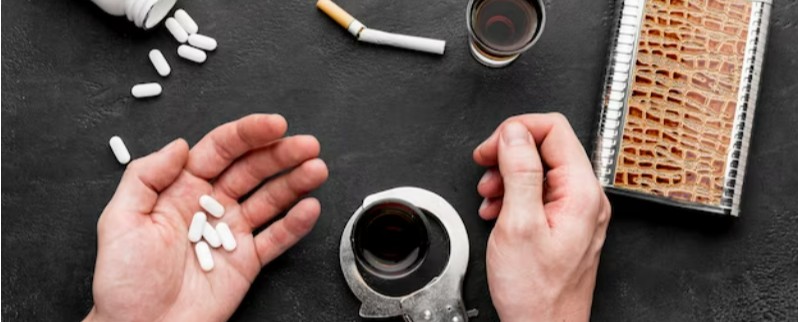
Supporting Loved Ones: How to Help Someone at Risk of Overdose

Supporting Loved Ones: How to Help Someone at Risk of Overdose
Overdose is a critical and growing public health issue, affecting millions of individuals and their families worldwide. If you have a loved one at risk of overdose, it can be an overwhelming and frightening experience. Knowing how to support them effectively is essential, not just for their safety but also for their overall well-being and recovery. This article aims to provide practical advice on how to help someone at risk of overdose, highlighting the importance of understanding, communication, and proactive measures.
Understanding Overdose and Its Risks
An overdose occurs when a person consumes a toxic amount of a substance, such as drugs or alcohol, overwhelming the body's ability to cope. This can lead to severe health complications, including respiratory failure, cardiac arrest, and even death. Factors increasing the risk of overdose include the use of high doses, mixing substances, reduced tolerance after periods of abstinence, and underlying health conditions.
Recognizing the Signs of Overdose
Early recognition of an overdose is crucial for timely intervention. Symptoms can vary depending on the substance but commonly include:
- Slow or irregular breathing
- Unconsciousness or unresponsiveness
- Pale or clammy skin
- Blue or purple lips or fingernails
- Vomiting or gurgling sounds
- Seizures or severe muscle spasms
If you notice any of these signs in your loved one, seek emergency medical help immediately. In many cases, prompt action can save lives.
Educating Yourself and Others
Understanding the risks and realities of overdose is the first step in supporting your loved one. Educate yourself about the substances they are using, the specific risks associated with those substances, and the signs of overdose. Many community organizations and healthcare providers offer resources and training on overdose prevention and response.
Sharing this knowledge with other family members and friends can create a supportive network. Everyone should know how to recognize an overdose and what steps to take in an emergency. This collective awareness can make a significant difference in a critical situation.
Having Open and Honest Conversations
Communication is a vital aspect of supporting someone at risk of overdose. Approach your loved one with empathy and without judgment. Express your concerns about their well-being and let them know that you are there to support them. Use "I" statements to convey your feelings without sounding accusatory, such as "I am worried about your health" Encourage open dialogue about their substance use, its effects on their life, and their willingness to seek help. It's essential to listen actively and validate their feelings. Avoid lecturing or using stigmatizing language, as this can create barriers to effective communication.
Creating a Safety Plan
Developing a safety plan can help reduce the risk of overdose. This plan should include:
- Emergency Contacts: A list of people to call in case of an emergency, including friends, family members, and healthcare providers.
- Safe Use Practices: Encourage safer practices, such as not using substances alone, and avoiding mixing substances.
- Check-in System: Establish a routine for regular check-ins, either in person or through calls/texts, to ensure they are safe.
Encouraging Professional Help
Encouraging your loved one to seek professional help is crucial. This may include medical treatment, therapy, or joining a support group. Discussing the benefits of seeking help and providing information about available resources can be persuasive.
Offer to assist them in finding a healthcare provider, setting up appointments, or attending support groups together. Professional help can provide the tools and support needed for recovery and can significantly reduce the risk of overdose.
Supporting Recovery and Wellness
Supporting a loved one at risk of overdose goes beyond immediate safety. Encouraging a holistic approach to their well-being can aid in long-term recovery. This includes promoting healthy lifestyle choices, such as regular exercise, balanced nutrition, and adequate sleep.
Emotional support is equally important. Encourage your loved one to engage in activities that bring them joy and fulfillment. Support their efforts to build a positive social network and foster connections with people who positively influence their lives.
Taking Care of Yourself
Supporting someone at risk of overdose can be emotionally and physically draining. It's essential to take care of your own well-being to be an effective support system. Seek support from friends, family, or professional counselors to help manage your stress and emotions.
Conclusion
Supporting a loved one at risk of overdose requires understanding, compassion, and proactive measures. By educating yourself, maintaining open communication, creating a safety plan, encouraging professional help, and promoting overall wellness, you can play a crucial role in their safety and recovery. Remember, you are not alone in this journey, and seeking support for yourself is equally important. Through collective effort and empathy, we can help reduce the risk of overdose and support our loved ones toward a healthier, safer future.
Articles
Build your awareness and get inspired with our researched articles on how you can strengthen your well-being
Popular Topics
An OTP has been sent to the email address
provided.
Please check your Inbox and Spam folders.

What Would You Like to Speak with a Specialist About?
Mental Fitness Journey starts Now!
Chearful Connects you with Top-tier Qualified Wellness specialists for the Price of a cup of Coffee!

Next Steps
- A Client Team member will reach out to you to schedule a session with the most suitable specialist.
- You will receive an email with a 10% Discount Code* for your 1st session.
- We invite you to Explore the Platform & Sign Up today! *Upto a maximum of $10 discount on a session purchased




 2970 Read
2970 Read

.jpg)









